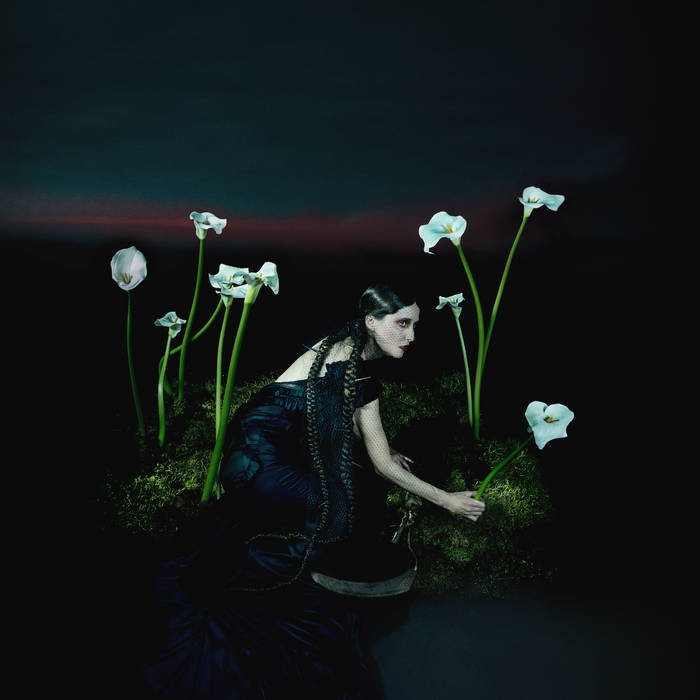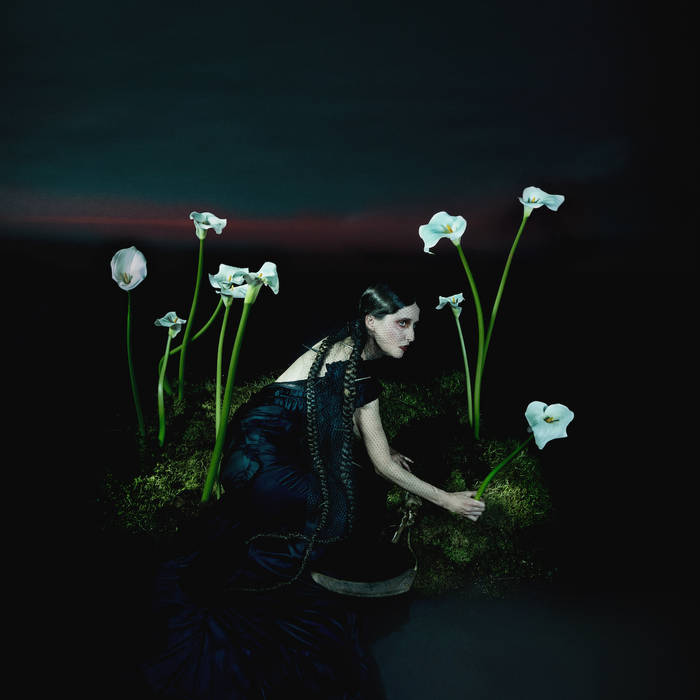THE SHAMELESS - PRAYERS AFTER DARK
Long lines of stars, daughters of nights full of blues and electric circuits, meet in Ragusa, an Italian city in ferment, very active in recent years, to fix in time vibrant tensions and meticulous inspections in the night perimeter.
The band The Shameless is undoubtedly the most gifted, capable of bringing Madrugada's word to Italian soil, both in its musical structure and in its singing, for a contact and a similarity that nonetheless also offers some precious differences. It is a work that is also characterised by a mastodontic ability to make the sound a sensible whole, capable of attracting attention through a density of fragments that gives the whole an identity that does not waver, a heartfelt sinew of orgasms and propulsions, in which slower rhythms are favoured to expand the various segments in detail, but when the pace picks up, one is left with a dark happiness that bewitches, continuing to produce addiction.
There are six original tracks by the band, for a number that seems small but instead becomes a mighty square root, given the density of the elements proposed, the quality, the layers and the visual suggestions offered, in an emotional tidal wave that also finds in the textual aspect a harbour from which considerations, emotions and flights depart, capable of making us see a part of the world with an overflowing genuineness.
We are within a sombre musical style, in which alternative rock shows its burrs and respectful claws, with gothic flames to console the nights, imbuing the whole with a hinted and intelligent post-rock, dragging blues-rock to peaks from which we enjoy a painful and yet worthwhile emotional panorama. Without forgetting what can be defined as the spiritual mother of the entire work: folk-rock/Americana that hovers continuously, unleashing fervours and sharp blades, with that gloom that corroborates the whole and from which one cannot escape. The harmonic progressions (damn expressive, by singer Ippolito Nicolini) are a further step towards perfection, in which theatricality and evocation sublimate a talent and hard work of assimilation.
Gianpaolo Cassarino is a hypnotic lightning bolt with his bass and violin (not forgetting synth and keyboard), while Alberto Difalco's powerful drumming style needs no technical tricks: he strikes at the heart with absolute class, giving the sound of his instrument a strong emotional density. Gaetano Scribano's and Giuliano Spataro's two guitars are the black river that sucks in gravity and leads it into the inner chaos of this soaring, northern formation, lost in its beauty and density.
All five musicians touch the everyday boundaries of dreams (the true protagonists of this work) and respectfully lead them to the intimate place of prayers, invocations, without falling into the trap of hope, demonstrating a remarkable maturity. The feeling that despair is not a corollary but one of the sources of inspiration of this album makes for a highly dense and attentive listening experience, as there are never any signs of surrender or complacency. For this aspect, too, the applause can only be powerful and intense: the five guys are truly anachronistic knights who do not forget the present time but live intensely the quality of memory, clearly showing their reference points, preferences and a remarkable capacity to absorb certain values now lost. Here, then, are perfectly aligned plots that encompass anger and faith in the human being (rather than in any God), in order to glide through the richness of the human soul, here delicately explored and described, to the point of painting its fragility. A journey that thrills with direction, depth, skill and culture of the various behavioural conduits of spiritual presences in turmoil and nevertheless careful not to disperse. They are guiding, masterful songs, daughters of sleepless nights and controlled sunshine, bringing us reflections and emotions perfectly matched and embedded in a context that we are bound to love.
The Old Scribe is notorious for not liking cover versions, yet the two pieces that conclude this gem are a respectful, vibrant act of love for two bands that do not seem to appear too much on the album (given the musical styles exhibited), yet in reality the Sound's track (I Can't Escape Myself) and that of Nick Cave & the Bad Seeds (Straight to You) become the perfect summary of the whole, where decadence and tension, message and legacy are found together, as the supreme representative of this effervescent and tribulating sledgehammer of Prayers After Dark, a hard and compact diamond with the appearance of a swan swimming in the sea of our needs.
One experiences, with these compositions, the celestial space of a fertile abandon, a vitaminic charge of realities that pass through prayers and darkness, for an afflatus that makes the compositions a poetic marriage between the time that was and the present day.
Song by Song
1 - Chic Jesus
The only single opens the album and is a spiritual that relies on the blues elaborated perfectly by Mark Lanegan in the latter part of his career. Psychedelic flashes converge in this procession that brings together Christian religion and paganism.
2 - Stuck in a moment
We enter the heart of the night with Jesus in our eyes and a tale that moves between poetic suggestions and searing blades, in which everything struggles to remain in the memory, for an electric gem completely focused by a refrain that amplifies the already high quality.
3 - Nobody save me but you love
The imperious and homicidal Madrugada embrace the Sicilian band for a vessel aboard which travel malignant arpeggios, light-oxidising lyrics and a fully functional decadent atmosphere.
Poisonous, sinuous, terrifying, neurotic: a song that crosses the boundaries of pleasantness to condense and rest in our sunken arteries
4 - Oh sister
Love experiences tragedy on a daily basis: to portray the concept, the group uses the simple complexity of soaring melodies, with a thread laden with melancholic watts that gently slump into the arms of Nick Cave.
5 - Transhumans
Bone-breaking passion finds refuge in a musical composition that seems to transport the images inside us, which starts out slow and then, in a bewitching swirl of bitter guitars, quickens the beat, to become a folk/American blues perfectly integrated in the context of gas and tear-filled lyrics
6 - Cry Cry Baby
We return to dreamy channels, in a poetic love embrace, with the song revealing the skill of the arrangement, in a truly impressive ballistic finesse. Everything seems to be a cradle, but in the end the song condenses mixed feelings, defining the beauty and utility of pain...
7 - Straight To You
Shimmering tears and a dutiful bow: the approach to this gem by the Australian bard Nick Cave offers the side of inevitable criticism. Instead, we find in our ears a caress that shows how the band has brought out the more intimate side of this gem, highlighting the harmony and intensity...
8 - I Can't Escape Myself
One weeps, one thanks the courage and love of Shameless for the Sound, for this eternal diamond that the Sicilians have experienced first hand in listens that have grasped all the beauty of the song and then respected its integrity, with a process that puts the focus on the sound the precise quality necessary not to offend it. And it's roaring and it's also the perfect way to end an equally perfect work...
Alex Dematteis
Musicshockworld
Salford
13th April 2025
https://theshameless2.bandcamp.com/album/the-shameless-prayers-after-dark
















